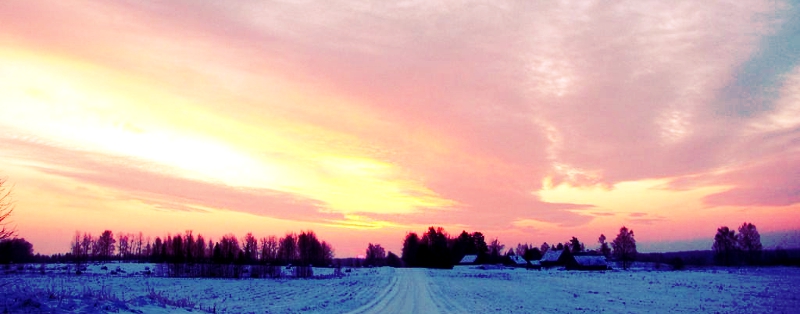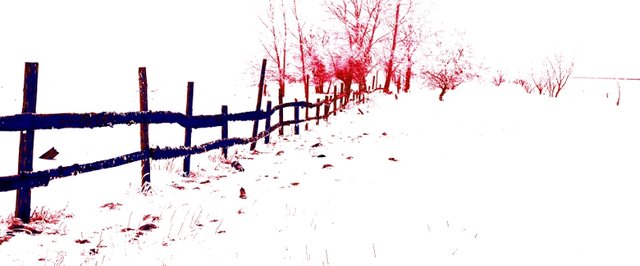Freedom and Loss: Reflecting on the Life of my Grandfather on the Anniversary of His Death
I first wrote this on the occasion of my grandfather's passing, two years ago. I've thought about it a lot since then, and since different people read this blog now than did then, I thought it might be worthy of a quick edit and repost.

January 2018: A Few Thoughts on the Passing of My Mother's Father
Roundabout 3 p.m. yesterday, the snow folks have been bracing for came squalling in from the Northwest. Twenty minutes after it started, the ground was covered.
Recently, I somewhat cheekily related my cryptocurrency investment choices to Sartre and existentialist ideas about radical freedom. After I wrote that, though, it occurred to me that any discussion of human freedom worth having would note that sometimes we don’t get to choose ourselves, and might not even get to choose who we’re going to be after the dust settles on a given moment of crisis. Off the top of my head, the crises I thought of were betrayal, violence, and the death of loved ones.
Yesterday, before the snow, at ten 'til seven in the morning, my mom texted me to say her father wasn’t doing well—he was agitated and having trouble breathing. His hospice nurse was on the way to see what was up. I asked if there was anything we could do, and she said we could pray, especially because my grandmother was sick with the flu, and fairly incapacitated.
At 7:12 a.m., mom texted again, to tell me he was gone.
When I got the text from Mom, I wasn't sure what to think or how to feel. Losing a loved one is always hard, but in my grandfather's case, I think we all also felt a sense of release and relief for him and for my grandmother.
In lots of ways, I hardly knew the man my grandfather was. I have blurry childhood recollections of a stern and thoughtful farmer with a crackling laugh who would slip into a separate vocabulary and sentence structure of formality and reverence when he prayed aloud. As I grew up, I was getting to know him, to distinguish him as a person from the concept of "grandpa." But I never really did know him. When I was eight years old, he underwent surgery to replace both knees, and as a result of complications with recovery, suffered a devastating stroke.
He was never the same. He became halting and easily confused. For awhile, he couldn’t read. At first, he couldn’t even speak English, just the Pennsylvania German of his childhood. Crowds became stressful, and eventually they became terrifying. His brain had changed in ways that—while he chose to have the surgery and to accept the risks it carried—limited his capacity to choose a future for himself and to consciously interpret reality. His own mind had become an unreliable narrator, and an erratic driver of his life and body.
For almost a decade after the stroke, Grandpa was ruefully aware of what he couldn’t regain. He'd explain with an embarrassed laugh to interlocutors that he had had a stroke, and couldn’t process or remember like he did before. He still prayed over the meal at family holidays, albeit in a confusing mix of the lofty vocabulary and structures from the bygone era, now presented to God as scattered symbols of a sentiment. We are reverent, we are grateful.
A couple of years after the stroke, he was able to go back to farming in a reduced capacity, stumping through the grounds in a blue work shirt and pants with suspenders, scratching at his stubbly, permanently sunburnt neck while he thought longer and harder than he'd had to before.

Grandpa's life was abruptly, irrevocably changed, and so was my grandmother's. As he had chosen to accept the risks the surgery presented, she'd chosen to accept his whole lifetime's worth of risks, four decades earlier. With their children grown, and more life behind them than in front of them, the bill came due. And after almost seventy years of being conditioned and obliged to look to men for answers and decisions, she made a decision for herself, and slipped into the driver’s seat.
The same forces that conditioned her, that demanded Amish and Mennonite women to look to men for answers, for decisions, for leadership had conditioned my grandfather to expect to be the one answering, deciding, and leading. For awhile, during the first decade, he knew enough to know he simply didn't possess the capacity to do those things, anymore. But occasionally, and more frequently as he lost ground, Grandpa would forget that it was no longer possible for him to chart a course for himself, much less for Grandma. In those moments, he tried to take control of their lives. He assumed it as his birthright and responsibility, and he burned with frustration when things didn't work like they used to, like he was sure they ought to. Those were hard moments for everyone, and they were hardest for grandma. She missed out on some of the joys of the second half of life, not only out of deference to his physical limitations, but more often because of the mounting limitations on his mind. She understood, though, that those moments came not because he was choosing to be difficult, or to become disoriented and angry, but because he could no longer choose not to be.
What he could choose, though, was the endless struggle to regain what he’d lost. For almost ten years he struggled, and he succeeded.
One morning, four years or so after the stroke, when I was twelve, I was instructed to move the tractor during a family corn-husking day, and revealed my limitations as a tractor driver by running it into the washline. When the shouting and running and tractor-wrecking subsided, the inquest revealed that I was being asked to drive tractors without having really been trained to drive them. So Grandpa, limitations notwithstanding, taught me to drive tractor. One afternoon, during a lesson, he showed me the spot where he’d driven a tractor into a drainage ditch, and we laughed about it together. Always, he'd been able to maneuver any vehicle out of anyplace it might be stuck. Not even the stroke could take that from him.
After the stroke, he chose to keep taking a mile-long walk every evening just before sundown. During that first decade, he learned to read again, and was able to do so, but only ever at a labored pace. When he could choose to be, he was gracious about his diminished capacity. And the graciousness extended, even as his capacity waned. A year and a half before his death, when he no longer knew me as his grandson, he figured out that I was a friendly young neighbor, and got to know me again, apologizing every now and then because he couldn't remember my name. More than once, he introduced me to my mother, informing me that she was his younger daughter, and made chuckling observations about the family and about explain to me about his stroke.
And all the while, as he fought and gained, and fought and lost again, Grandma not only learned to steer a family, she learned to do it while giving grace for the moments when he couldn’t let her decide. She shouldered a heavier and heavier load as her shoulders grew thinner. She began to use a cane. Sometimes she joined him for his walks in the evenings, but more and more frequently, she no longer had the energy. Together, they learned to putter around the farm in a golf cart instead of on their feet.
As 2017 passed, he lost ground more and more quickly. The boundaries of his possible choices hemmed him and Grandma in. My aunt, uncles and parents decided to engage a hospice service just to keep grandpa comfortable, and to be ready when the end came. It was inching closer. He was harder to reach. He understood less, and we understood him less.
The night before he died, as I puttered around my house and wrote a ridiculous blogpost about cryptocurrency investment and radical freedom, my parents were at my grandparents’ house, making him comfortable. He was restless throughout the night, struggling to be calm, and increasingly, struggling to breathe. As daylight approached, his restlessness intensified.
He kept talking until very near the end, but by the time he slipped away, my parents and grandmother could no longer understand the words he was saying. Before that, in the predawn hours as he strove against the growing weight in his chest, his last intelligible speech was a repeated quote from the words of Jesus in John 14, “Let not your heart be troubled.”

Sometimes events conspire against your choices and your plans in bigger ways than snowstorms and breakups and everyday disappointment, and there is no rebound. Some things yank the carpet of our ontology with such force that no one can blame us for the choices we make in the aftermath. Sometimes, all the structures that show us how and what to choose are still lost in the rubble when the time comes for deciding. When the blood seeped into my grandfather's brain as he talked to his children in a hospital room in 1998, it changed him and his world, in ways he could never recapture. It changed my grandmother's world in ways it isn't likely she could have understood before they happened.
If you find yourself in one of those situations, as most of us will find ourselves eventually, I don’t feel like anyone can stand over you banging gavels. They will, of course, but it's a mistake. We choose what we can, but no matter how committed we are to the radical freedom of choosing who we will be and how we will understand the world, we all run up against the walls of our reality. We all run out of choices.
And here's one more thing that I think I've learned from watching my grandparents navigate the last nineteen years of my grandfather's life. When things happen outside of your control, when those events change you in ways that are also outside of your control, when the dei ex machina start ganging up and hemming you in and the sum of your choices is reduced to insignificance, there are still decisions to make about grace and humor and faith and loyalty.
And how you choose is up to you.
Congratulations @juanersatzman! You have completed the following achievement on the Steem blockchain and have been rewarded with new badge(s) :
You can view your badges on your Steem Board and compare to others on the Steem Ranking
If you no longer want to receive notifications, reply to this comment with the word
STOPDo not miss the last post from @steemitboard:
Vote for @Steemitboard as a witness to get one more award and increased upvotes!